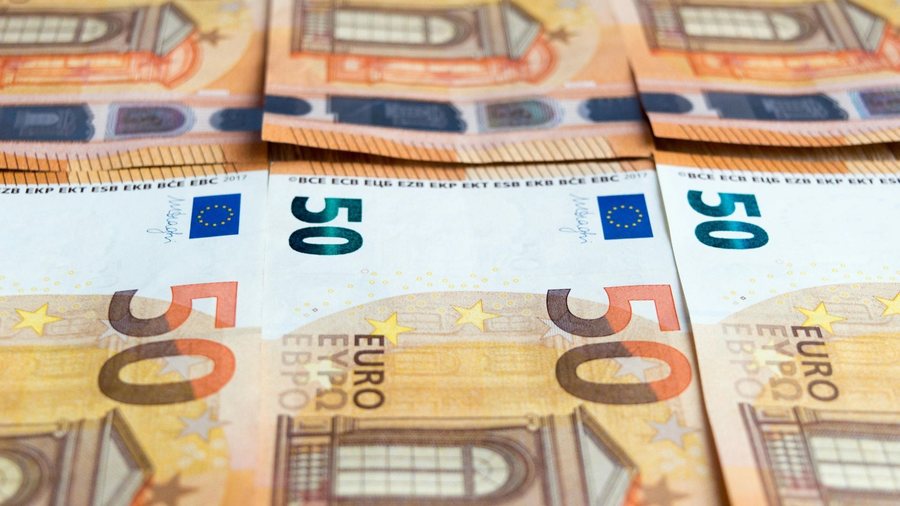Can the Euro Go Global? - With the Dollar "Floating," European Policymakers Have a Golden Opportunity

Europe's first reserve coin was the tetradrachm, which featured an owl. The symbol of wisdom was intended to inspire confidence in the rulers of ancient Athens. In fact, the owl also appears on the Greek version of today's 1 euro coin.
This is not the only way the tetradrachm would have been known to modern economists. As Barry Eichengreen of the University of California, Berkeley, notes, throughout history every major currency has belonged to a republic or democracy. Used only by the most powerful, the currency promised a degree of stability, an essential ingredient, along with a large economy and military might, for any reserve currency. It is the lack of such stability in today’s America that is prompting investors and policymakers to question the dollar’s role as the world’s reserve currency.
With the dollar struggling, could this be the euro’s moment? Both Christine Lagarde, president of the European Central Bank (ECB), and Paschal Donohoe, head of the Eurogroup, the forum of eurozone finance ministers, have recently spoken about ways to enhance the currency’s international role. The euro will not replace the dollar, but it could serve an increasingly important function. And if policymakers seize the moment, potentially epochal changes in the global financial order could work to Europe’s advantage.
Since its birth in 1999, the euro has been a leading contender for global status. In the wake of the 2007-2009 financial crisis, European officials hoped that over time it could rival the dollar. Then came the euro crisis of the 2010s.
The ECB was not designed to be a lender of last resort, which made government bonds highly volatile. Europe's banking system was divided along national lines and prone to the desperation that linked sovereign debt to the shakiest financial institutions.
Capital markets were too small to compensate for such risk. The eurozone offered few safe assets for those looking to deposit cash: bond issuers were either too frugal (in the case of Germany) or lacked credibility (in the case of Italy and Spain). Common debt, backed by the entire bloc, existed in very small amounts. The bleak outlook for economic growth then forced short- and long-term yields below zero. With European assets offering low returns on investment, there was little demand for the euro and no global role for the currency.
Today, the euro is in a stronger position: second, but far behind, to the dollar, accounting for a fifth of global central bank reserves, compared to three-fifths for the US dollar. The figures are similar for foreign-currency bond issuance. Over the past decade, as the world has gradually diversified away from the dollar, the euro has struggled to gain ground. However, some European officials now believe that this may be changing, for four reasons.
The first is that the eurozone’s financial architecture has become more secure. The ECB has emerged as a lender of last resort in everything, a process that began in response to the euro crisis under Mario Draghi, then president of the European Central Bank. During the Covid-19 pandemic, the bank set up a bond-buying program with a budget of more than 1.8 trillion euros ($2.1 trillion). When sovereign bond yields rose sharply due to inflation in 2022, policymakers created an unlimited bond-buying scheme to prevent such spreads from exploding in the future.
Investors have also seen that the European Union will support struggling governments, and will do so generously. During the pandemic, the bloc created an 807 billion euro recovery plan, financed by joint EU debt, to help countries that might face problems. Moreover, the ECB is now firmly positioned as the supervisor of Europe's 114 largest banks, which together hold 82% of the continent's total banking assets.
Moreover, investment in Europe has become more direct, a second reason for optimism. The European Recovery Fund created a lot of common debt, and thus safe assets that are truly European. Germany is ready to start spending more, amid a huge increase in defense spending, financed by deficits across the continent, which officials believe should rise from 2% to 3.5% of GDP in the coming years.
The third reason is that Europe’s institutions now look more attractive, at least compared to America’s. Far-right parties are strong and gaining ground in countries like Germany and France. One is in power in Italy. At the same time, the euro is the common currency of 20 sovereign states and has a very independent central bank overseeing it.
Members would struggle to agree on any changes to the way the currency is governed, let alone to use it as a weapon for geopolitical gain. Moreover, sanctions against other countries would require the consent of all 27 EU members. The rule of law is central to every aspect of the EU; the bloc’s checks and balances are not in doubt. Nor is the broad consensus, forged over decades of compromise and reconciliation, that the EU should be as open as possible to foreign trade and investment.
The ECB has created a legal framework for providing liquidity in euros to countries that do not use the currency, which could be more attractive to crisis-hit countries than the Federal Reserve's swap lines if Trump continues on his current course.
Then comes the final reason for optimism: the state of international trade. As America decides to withdraw from global trade, Europe will begin to play a more important role. Goods and services invoiced in euros will create ancillary markets for the currency, including trade finance, insurance, and hedging derivatives for interest rates and currencies.
Although over-the-counter currency derivatives remain dominated by the dollar, euro interest rate derivatives have recently surpassed those in dollars. New trade links will also lead to the creation of euro credit and deposit accounts around the world, which in turn will increase the demand for euro assets and, consequently, central bank reserves.
Europe has a chance to take the lead in a new liberal trading order, which would create opportunities to shape the financial system. Ursula von der Leyen, the president of the European Commission, notes with joy how “many countries around the world want to cooperate more closely with Europe.”
According to an ECB study, in the 2000s the eurozone’s eastern neighbors began to bill trade in euros because of their closer trade ties with the bloc; the same dynamic may now be playing out in the rest of the world. Capital tends to follow geopolitical alignment. A study by Elisabeth Kempf, then at the University of Chicago, found that asset managers and banks invest less in countries led by governments with political leanings different from their own.
However, such opportunities will not fall from the sky into the laps of European policymakers. Difficult reforms will also be required.
Highly indebted countries, including France and Italy, will need to boost economic growth in order to remain fiscally sustainable, rather than increasing the stock of investable bonds simply to make their budgets work. Germany, the Netherlands and the Scandinavian countries face the opposite task: they need to use their fiscal space for investment, creating safe assets in the process. Economic growth across the EU would help boost returns on all euro-denominated assets, including government bonds, making them even more attractive.
Europe also needs bigger and deeper capital markets to give investors more assets to put their money in. Policymakers have so far focused on easy profits when seeking to connect fragmented national markets, dealing with issues such as the process by which assets are secured, rather than more important topics such as harmonizing bankruptcy laws and business regulation. Faster progress on the ECB’s plans to connect third countries to its internal payments system would help, as would an international basis for a digital euro.
European officials would like to make the continent less dependent on both America and China. A more international euro would lower borrowing costs for national governments, which would be hugely beneficial at a time of rising defense spending. For now, few politicians will openly express such ambitions, aware that doing so would anger the Trump administration. But that doesn’t matter. International finance has its own logic and can devalue currencies even without grand speeches.

Natural disasters "flood" the economy - Damages could reach $145 billion in 2025
According to a new analysis from the Swiss Re Institute, global natural catastrophe insurance losses could reach $145 billion this year, largely driven by......

Sectoral Portal for Exports - Investment Council Requirements: Strategy against the Informal Economy
The Investment Council, a body established to improve the business climate with the aim of increasing investments in the country, has recently published its......

Albanian handicrafts from tradition to modernity - From the qelesh to filigree. Gonxhja: We have one of the treasures of heritage
Albanian handicrafts from tradition to modernity were reflected in Zanart, the fair where authentic Albanian products were demonstrated. The Minister of......

Trump "defends" the decisions of the first 100 days - Americans, worried by tariff tensions and recession
US President Donald Trump touted what he described as a series of major economic victories and lashed out at Democrats, including former President Joe Biden,......

400 kV line with North Macedonia - Tender opens for Macedonian segment, increase in cross-border transmission capacity
The Macedonian Transmission System Operator, MEPSO, has announced the international tender for the construction of the Ohrid-Bitola power line, part of the......

More citizens are insuring their lives - AFSA: In the first quarter of 2025, signed contracts increased by 31%
The insurance market experienced growth in the first quarter of 2025, both in terms of the volume of collections and the number of insurance......

Tropical fruits came in more and cheaper! - The average price for the first 3 months of 2025 was 81.4 lek/kg
During the first three months of 2025, around 8,100 tons of tropical fruits were imported into Albania. The majority of these products came from Latin......

12-month bonds “rebound” - Weighted average yield reached 2.78% in the last auction
The interest rate on 12-month treasury bills has recorded another increase. In the last auction, the weighted average yield reached 2.78%. Interest for this......


















